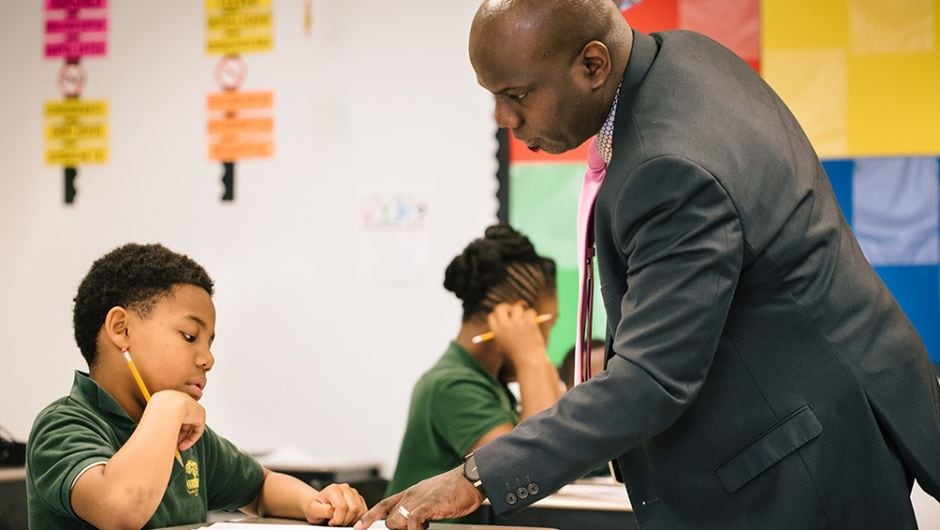Transforming Futures Through Mathematics Instruction
In the wake of the challenges brought on by the pandemic, the importance of a quality education has never been more apparent. Data from recent years has painted a concerning picture of math education in Texas. Particularly alarming is the decline in math proficiency among BIPOC, and low-income students, a trend that threatens their future academic achievements and economic mobility.
In Texas, we recognized this crisis as an opportunity for change. With the support of the Greater Texas Foundation, we made a strategic investment to evolve and optimize our math teacher training and support for 250 math teachers across the state. Our approach focuses on empowering math teachers to create inclusive, culturally responsive, and emotionally supportive learning environments. Our goal is to strengthen and standardize Teach For America’s training and support programming so our corps members develop the knowledge, skills, and orientations that will allow them to accelerate the learning of their students, providing each student with an excellent and affirming math education.
Through strong collaboration across our Texas regions, we will understand the conditions that are necessary for teachers to build math classrooms that drive toward equity, and we will build a fully scoped math professional development across a teacher’s first two years in the classroom.

While we are still early in the implementation of our evolved math teacher training and support, we’ve already seen some promising learnings:
-
Positive Principal Perceptions of Corps Member Effectiveness: Principals in Texas are more likely than principals in other TFA regions to rate math corps members as more effective than other novice teachers, especially in areas such as using data to inform instruction, achieving ambitious outcomes, and challenging and supporting all students.
-
Growth in Student Confidence and Agency: Teach For America coaches and teachers reported that students of math corps members in Texas are developing increased confidence and agency in math learning throughout the school year. This suggests that our new program model may be having a positive impact on students' attitudes and self-perception regarding math learning.
-
Improvement in Teacher Confidence and Persistence: Surveys showed both coaches and corps members themselves reported high levels of persistence and confidence at the beginning of the year, and those levels of persistence and confidence continued to increase throughout the school year. This pattern suggests that the program may be contributing to the development of increased teacher confidence and persistence in math instruction during their corps experience.
These learnings, while preliminary, are exciting and paint a promising picture. As we continue to test our new model, we’ll continue to incorporate and consider additional data and learnings to refine our program. In particular, we are standardizing our approach to program learning and measurement through implementation of the CLASS, Teachstone’s Classroom Assessment Scoring System. CLASS provides an objective, measurable, and consistent approach to measuring teacher-student interactions, specifically student emotional support, teacher-classroom organization, and instructional support. We also are doing a phased roll out of a student survey tool developed by the University of Chicago called Cultivate, which seeks to provide educators with insight into identifying learning conditions that cultivate strong learner mindsets and strategies that lead to strong academic performance, positive identity development, and well-being. Achieving success in math classrooms is critical to having future options and to providing all kids across Texas an education that prepares them to learn, lead and thrive.


